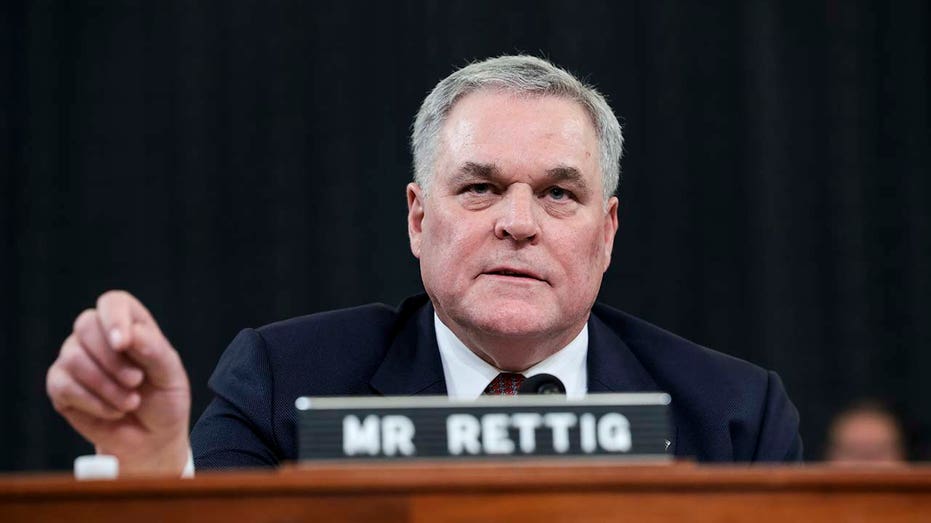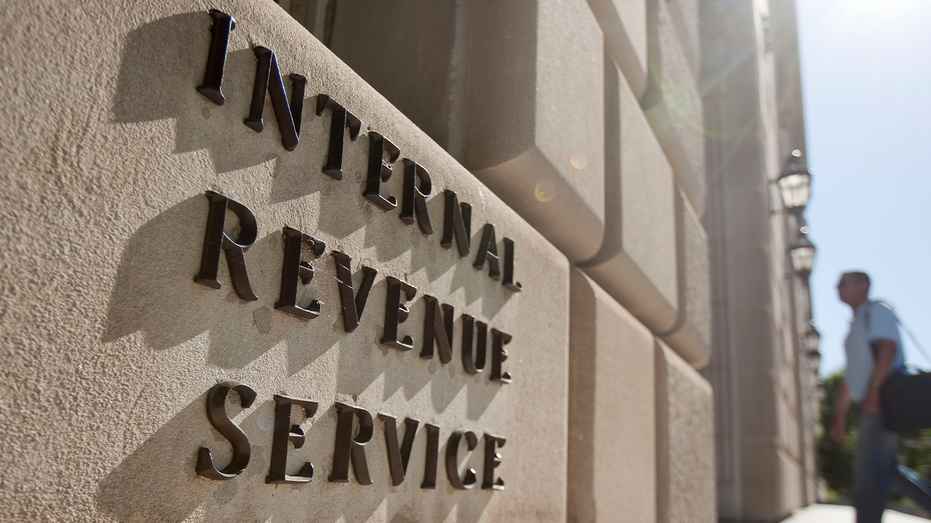IRS chief pushes Congress for law change on land-rights tax deals
Rettig says abusive syndicated conservation easement transactions persist despite stepped-up enforcement
Federal tax collections set record through first half of 2022
Liberty Tax CEO Brent Turner discusses the government's record-breaking numbers on 'The Claman Countdown.'
Internal Revenue Service Commissioner Charles Rettig sought congressional help Tuesday in stopping land-rights deals that the government views as abusive transactions.
Mr. Rettig said so-called syndicated conservation easements have continued despite years of stepped-up IRS enforcement that now includes guaranteed audits, attempts to assert civil fraud penalties, litigation and criminal investigations.

Internal Revenue Service (IRS) Commissioner Charles Rettig testifies before the House Ways and Means Oversight Subcommittee on March 17, 2022, in Washington, DC. (Photo by Kevin Dietsch/Getty Images / Getty Images)
"We’ve put a lot of resources into this space," he said at a Senate subcommittee hearing in response to questions from Sen. Chris Van Hollen (D., Md.). "We have not had an impact on essentially slowing the volume of these transactions…. We need congressional help. We need a statute to help us curb this activity."
BIDEN ADMINISTRATION MOVES ON TAXING, REGULATING CRYPTOCURRENCY
In a conservation easement, a landowner can claim an income tax deduction for donating development rights, typically to a nonprofit land trust. The syndicated deals created by promoters over the past decade use that basic structure, and they do create permanent restrictions on land use.

A man enters the Internal Revenue Service (IRS) building in Washington, D.C. (Andrew Harrer/Bloomberg / Getty Images)
But IRS officials contend that those promoters often rely on inflated appraisals and assumptions about potential valuable development to assert that they are giving up much more in value than what the land may have recently sold for.
In many cases, investors attempt to claim deductions exceeding four times what they spend, and those breaks are so large that they can make quick profits at public expense.
CORPORATE TAX COLLECTION HEADED FOR ANOTHER RECORD HIGH
IRS officials have tried to stop the deals with enforcement, and some promoters have exited from the industry. But the agency’s case-by-case approach to enforcement is time-consuming and resource-intensive, and the IRS has suffered some recent legal setbacks.

The dome of the U.S. Capitol in Washington (AP Photo/J. Scott Applewhite / AP Newsroom)
There is a bipartisan bill that would disallow deductions in certain cases where those breaks are more than 2.5 times what investors put in. The House Ways and Means Committee included that language, which would raise $12.5 billion over a decade, in a Democratic tax bill last year. That provision was removed before the full House voted, and the broader bill hasn’t become law yet either.
GET FOX BUSINESS ON THE GO BY CLICKING HERE
The Land Trust Alliance and other conservation groups back the legislation. Partnership for Conservation, a group formed as the IRS enforcement started, has been opposing it, particularly objecting to its retroactive effective date.




















